Food Safety & Regulatory Compliance
VerifiedAdded on 2020/01/07
|5
|721
|122
Report
AI Summary
This assignment examines the 'Food Standards Australia New Zealand Act 1991' outlining key practices prohibited by law, auditing and inspection regimes, and consequences for non-compliance. It also highlights the importance of business licensing, mandatory training, record-keeping mechanisms, and statutory reporting requirements for food businesses in Australia.
Contribute Materials
Your contribution can guide someone’s learning journey. Share your
documents today.
1 out of 5
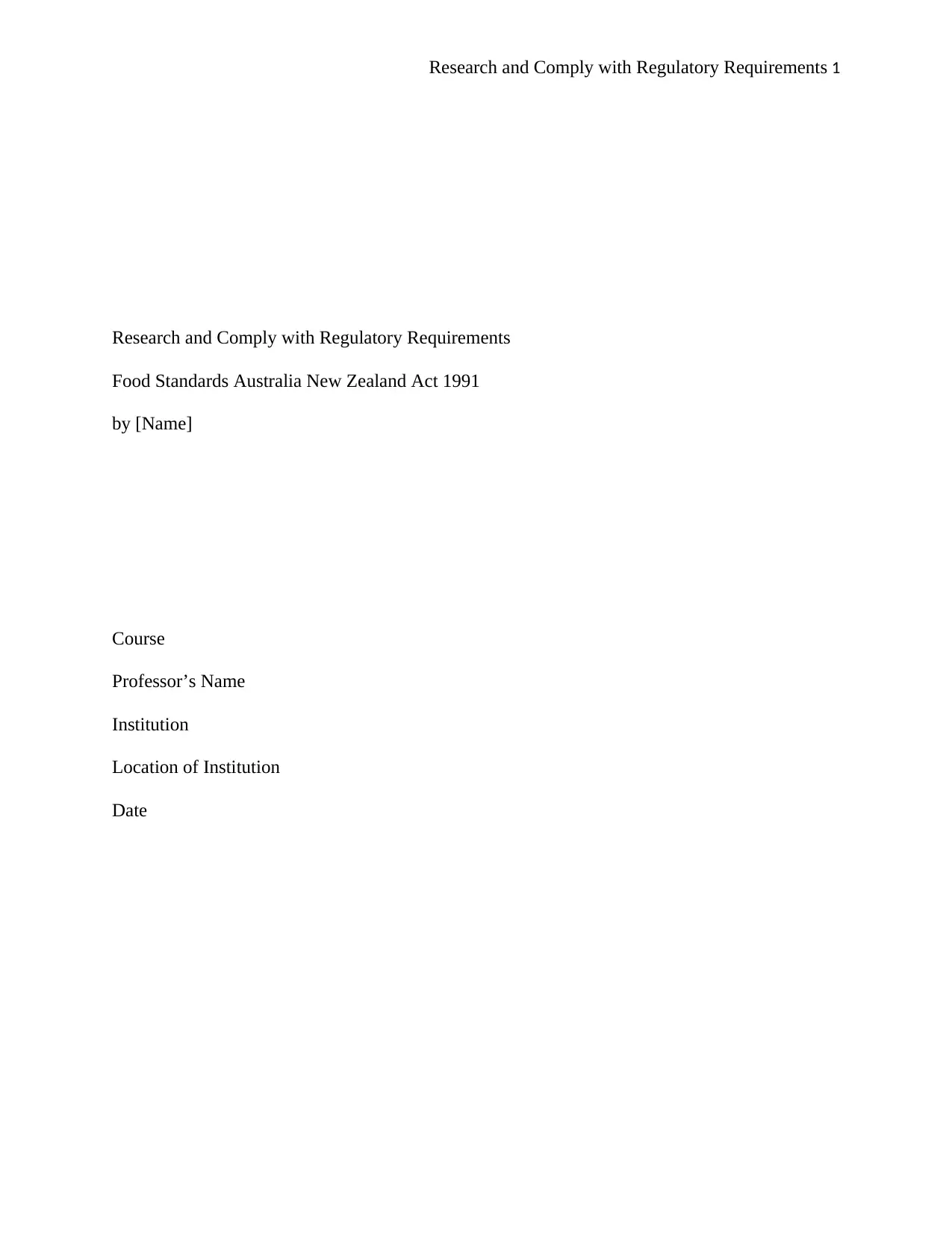
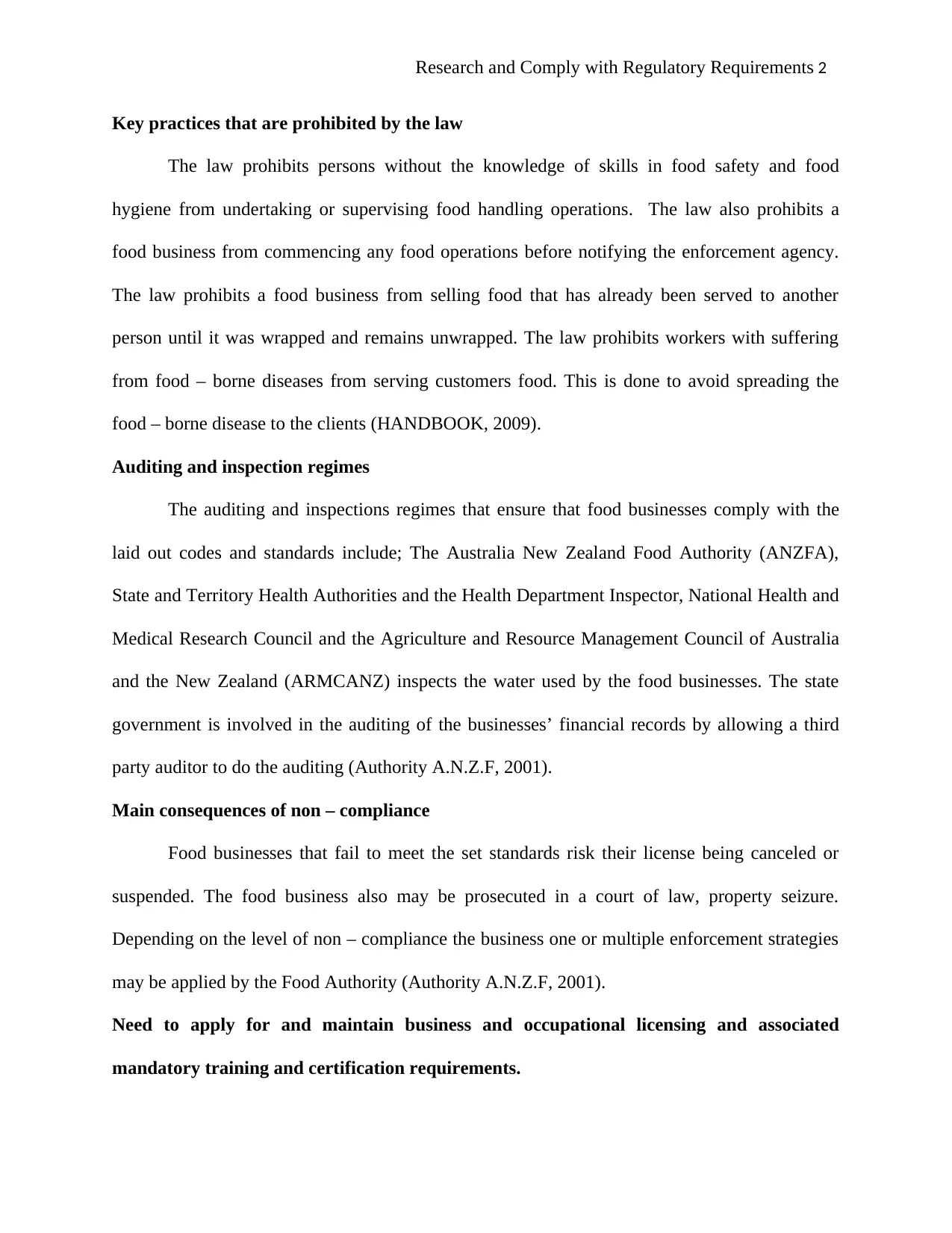
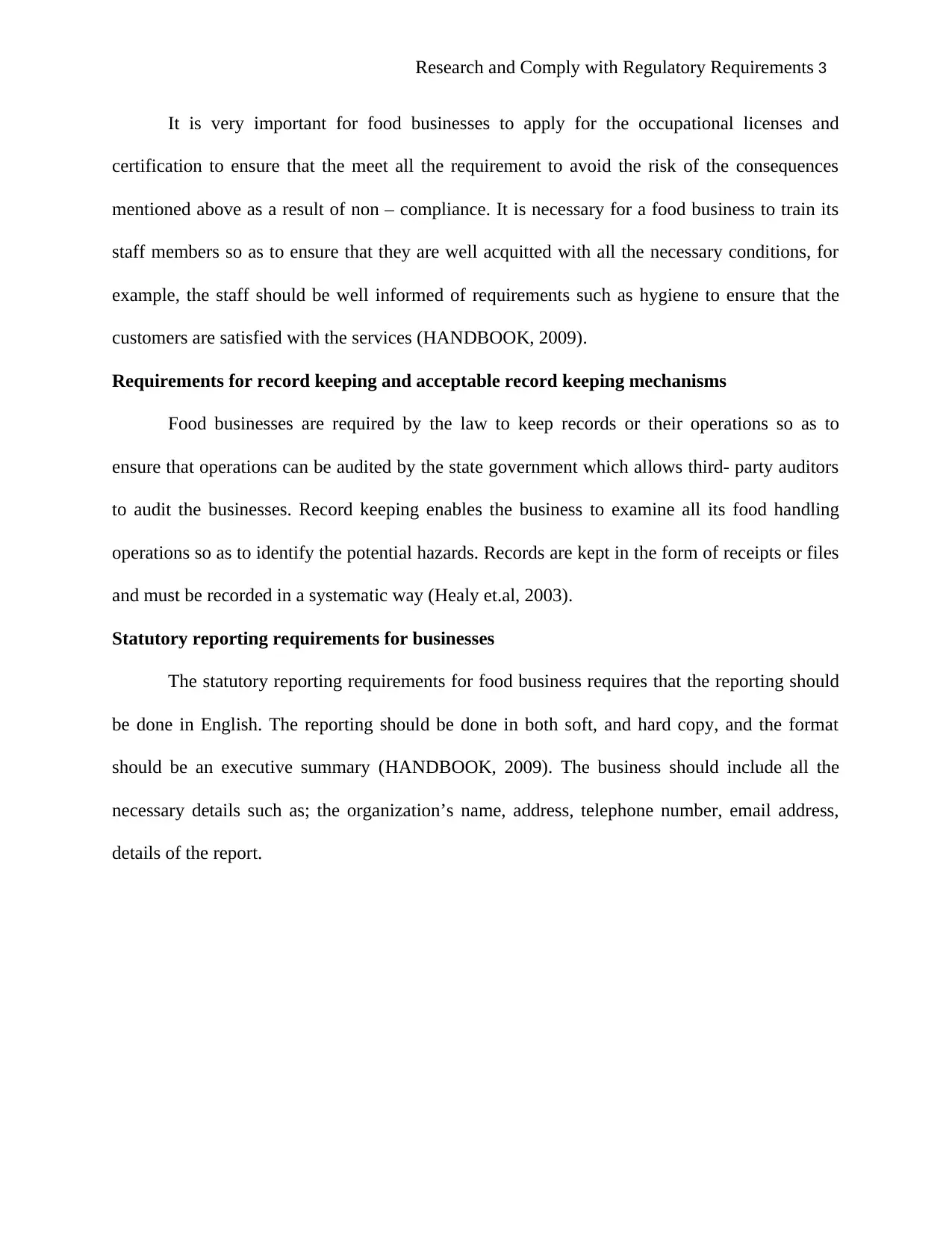
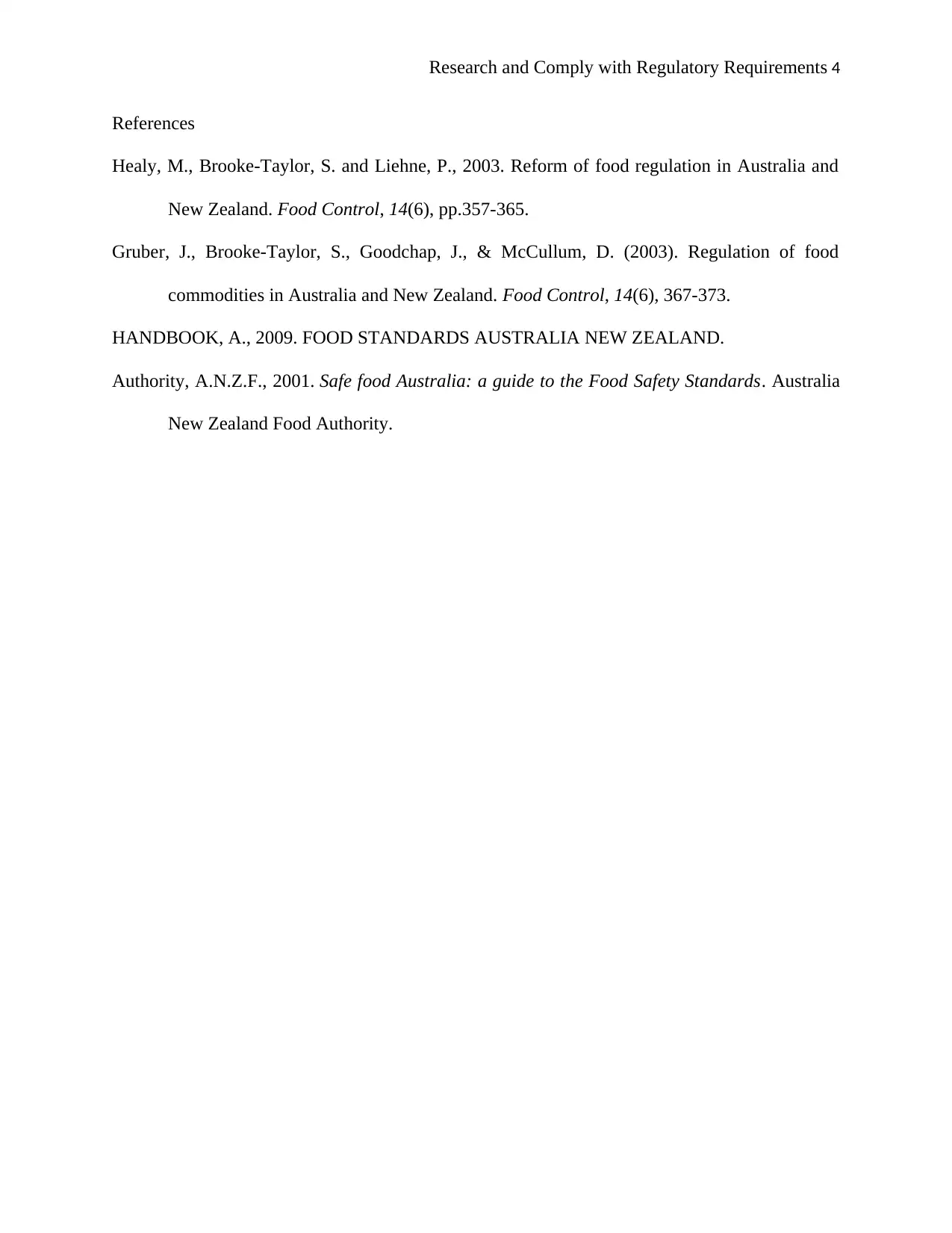
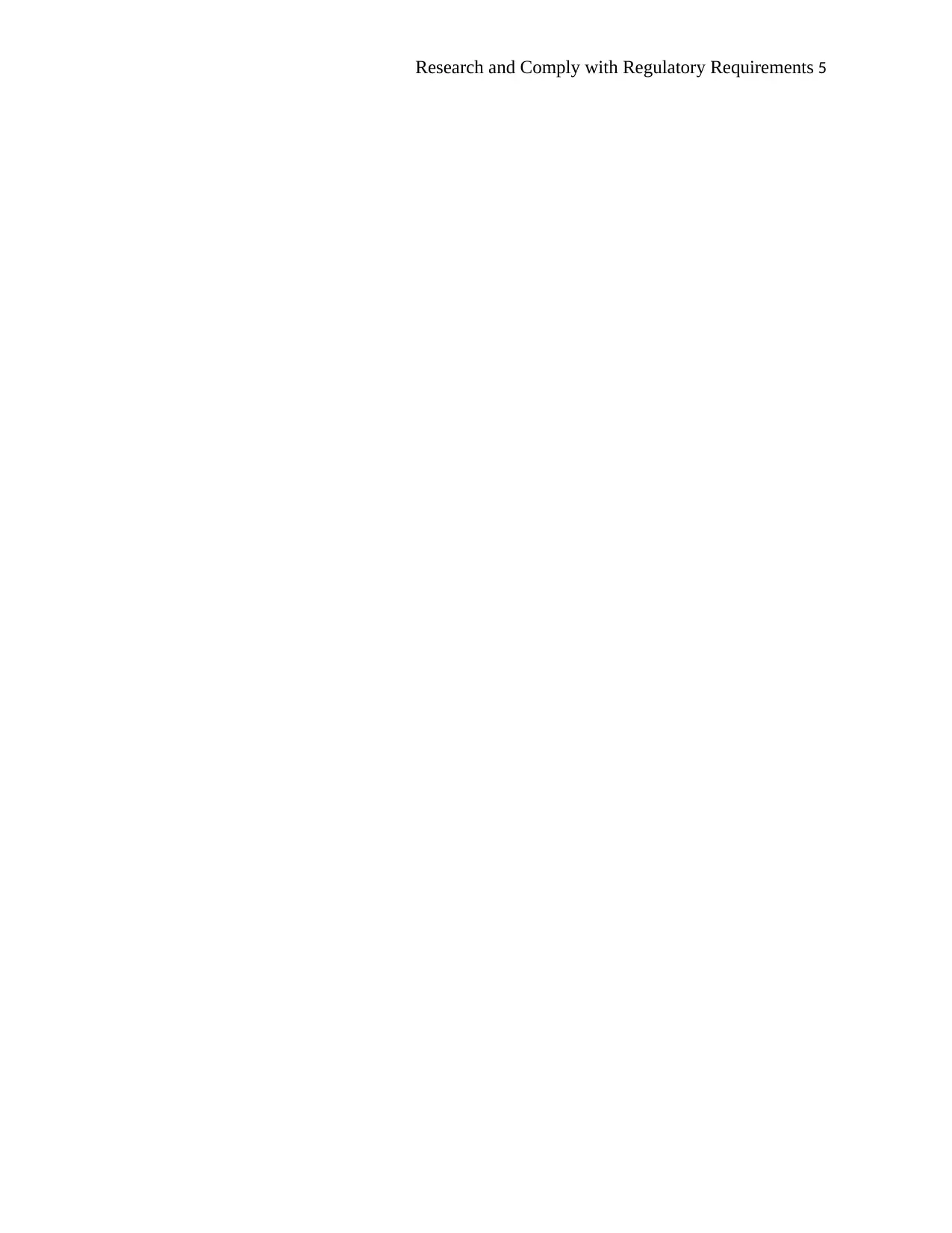






![[object Object]](/_next/static/media/star-bottom.7253800d.svg)